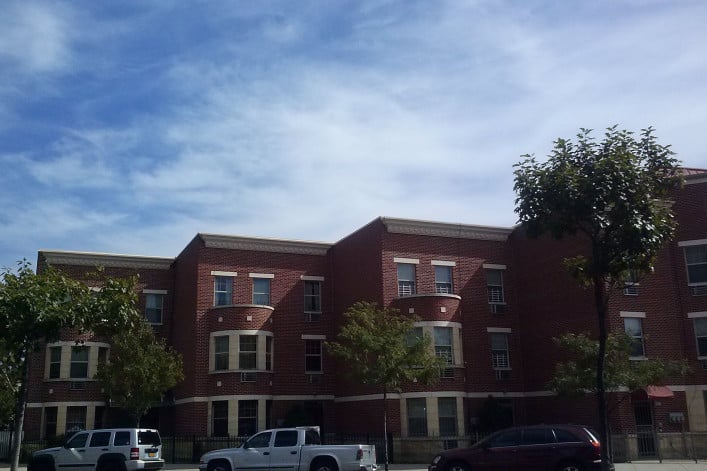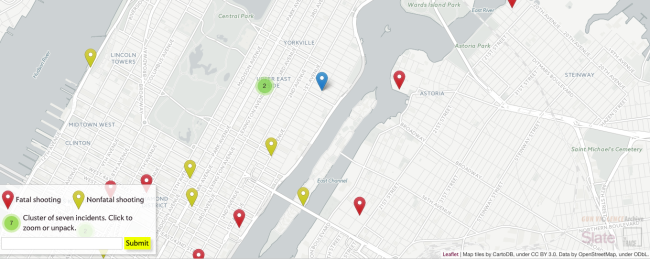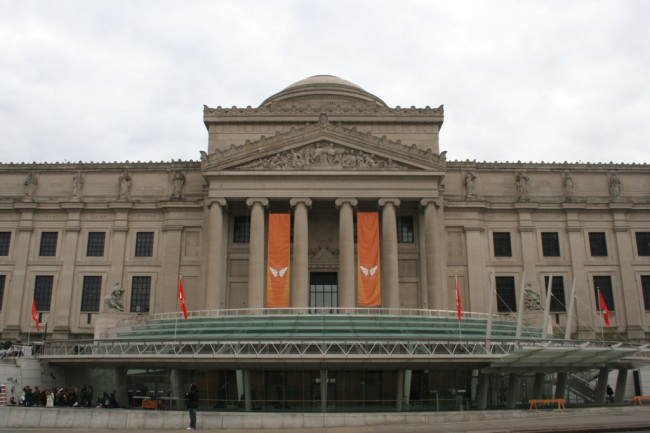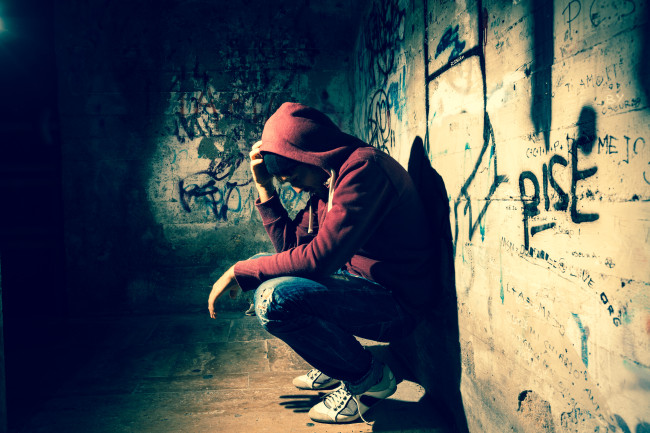Brownsville is getting some high-tech upgrades, but what does the Brooklyn neighborhood really need?
The Brooklyn neighborhood of Brownsville, Patch reports, is about to receive some high-tech upgrades. Brownsville has been named the first Neighborhood Innovation Lab, an initiative to enhance local quality of life via technology; a group of community leaders, as well as educators and representatives from the city government and tech companies, will collaborate on identifying how to best strengthen the neighborhood through tech.
This summer will see the roll-out of the first of the initiative's upgrades: Smart trash cans that can tell you when they're full; solar-powered benches with cell phone outlets; and digital kiosks that will engage residents in providing information about their neighborhood and how it's being impacted by the new features. Brownsville's Osborn Plaza will also host tech demonstrations and programs for the public.
The Lab's website notes that Brownsville is the ideal locale in which to "explore how new technologies can improve quality of life, enhance city services, and modernize public infrastructure, while also creating new opportunities for local economic development."
While i's certainly good news when the city commits to investing in neighborhoods to enhance well-being and bolster the local economy, the kind of investment being made matters. Brownsville is a corner of the city that is lacking in some of the basics many other New Yorkers take for granted, like easy access to fresh food, and a new WNYC story, aired not long after the Innovation Lab announcement, suggests that it's a place with problems that gadgetry alone won't solve.
The Citizens Committee for Children, WNYC reports, has released a study that found that over 50 percent of Brownsville children are living in poverty; the citywide average is 30 percent. The CCC report identifies a link between the neighborhood's higher rates of poverty, homelessness, and crime with negative health outcomes, noting that "children there are growing up with significant challenges."
Brownsville lacks a sufficient number of early childhood centers and after-school programs to provide for its large population of young children, for instance, and its high school graduation rates are well below the city average. Plus, the Daily News writes that neighborhood infrastructure leaves much to be desired: Four in ten residents do not live in walking distance from a supermarket or a bank, and two-thirds of locals are not within walking distance of a subway. Making matters worse, the local 3 train stops running after midnight, so residents who work the graveyard shift are out of luck when it comes to an easy train commute.
This confluence of disadvantages appears to have a direct impact on well-being: Life expectancy in Brownsville is 74.4 years, the lowest in all five boroughs.
The CCC's report offers concrete suggestions for contending with these problems, including an expansion of adult education and skills training to mitigate unemployment, an increase in housing and legal services to help more residents avoid homelessness, and an expansion of day care and after-school programming to keep young people engaged in educational activities.
Technology can, of course, help improve the lives of locals in Brownsville and elsewhere. For starters, per the Lab's website, smart technology like "inhalers that help asthma sufferers monitor their prescriptions and keep track of dangerous areas" sounds definitely like noble goals. Even an upgrade as simple as better street lighting could help residents feel more secure in their neighborhood, the CCC report notes.
Though it remains to be seen how the Neighborhood Innovation Lab might improve life in Brownsville, given that the initiative is the first of its kind, providing basic amenities like good schools, places to shop for fresh produce, or reliable, round-the-clock public transportation might be good places to start.
You Might Also Like


























